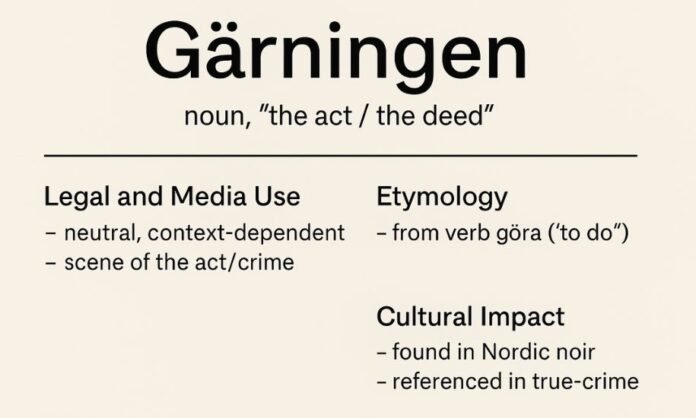Biometric technology has rapidly become an essential part of modern society, powering everything from unlocking smartphones to verifying identity at airports. While its convenience and accuracy make it attractive, the growing adoption raises serious concerns. The question “What are The Ethical Issues of Biometric Technology” is more relevant today than ever before. This article explores these challenges in detail, covering privacy, data security, discrimination, consent, and regulatory gaps. Understanding these ethical issues is crucial as biometric systems continue to shape digital identity and surveillance practices worldwide.
Understanding Biometric Technology
Biometric Technology Refers to the measurement and statistical analysis of people’s unique physical and behavioral traits. These include fingerprints, facial recognition, iris patterns, voice recognition, gait, and even DNA. Governments, employers, financial institutions, and healthcare providers increasingly use biometric systems for authentication and monitoring.
But as the technology becomes deeply integrated into daily life, the ethical debate intensifies. Asking “What are The Ethical Issues of Biometric Technology” means questioning not just the benefits but also the risks associated with widespread adoption.
1. Privacy Concerns in Biometric Technology
One of the primary ethical challenges is privacy invasion. Unlike passwords or ID cards, biometric data is tied directly to a person’s body and identity. This raises unique issues:
-
Uninformed collection: Often, individuals are unaware when biometric data is being gathered, such as surveillance cameras using facial recognition in public spaces.
-
Continuous tracking: Once captured, biometric data can be used to monitor people without consent, leading to mass surveillance.
-
Workplace implications: Companies adopting biometric attendance or access systems risk eroding employee trust, especially if participation is mandatory.
Thus, privacy forms a major part of answering “What are The Ethical Issues of Biometric Technology.”
2. The Issue of Informed Consent
Consent is central to ethical data collection. In many cases, users are not given clear information on:
-
How their biometric data will be stored,
-
Who will access it, and
-
Whether it will be shared with third parties.
Employees or customers may feel pressured to accept biometric use without alternatives. The absence of free and informed consent challenges human autonomy and raises serious ethical red flags.
3. Data Security and Breach Risks
Another pressing question within “What are The Ethical Issues of Biometric Technology” involves security. Unlike passwords, biometric identifiers cannot be changed if stolen. If a hacker gains access to facial recognition data or fingerprint scans, the damage is permanent.
-
Irreversibility: Once compromised, biometric information exposes users to lifelong risks.
-
High-value target: Hackers view biometric databases as valuable resources for identity theft.
-
Real-world breaches: Cases of leaked fingerprint and facial recognition databases show how vulnerable these systems can be.
This makes biometric security not just a technological challenge but also an ethical obligation.
4. Algorithmic Bias and Discrimination
Biometric systems are not immune to flaws. Research consistently shows that facial recognition algorithms often perform poorly on certain demographic groups:
-
Racial bias: Higher error rates when identifying people of color compared to lighter-skinned individuals.
-
Gender bias: Women are more likely to be misidentified than men.
-
Exclusion of people with disabilities: Some systems fail to recognize those with physical or intellectual disabilities.
Such biases can lead to wrongful arrests, denial of services, and systemic discrimination. Therefore, “What are The Ethical Issues of Biometric Technology” must also include the question of fairness and inclusivity.
5. Human Dignity and Social Impact
Reducing individuals to data points raises concerns about dignity. Biometric technology can create:
-
Dehumanization: Treating people primarily as biological identifiers rather than individuals.
-
Chilling effects: Constant surveillance discourages free speech, protest, or assembly.
-
Psychological burden: Knowing one is being monitored affects behavior and freedom.
The ethical debate highlights how biometric technology, if misused, can alter the very fabric of society.
6. Regulatory and Legal Gaps
The global legal framework is inconsistent when it comes to biometrics. Some regions, like the EU under GDPR, provide strong protections, while others, such as the United States, lack uniform national laws.
-
Patchwork enforcement: Only a few states have biometric privacy laws, like Illinois with its Biometric Information Privacy Act (BIPA).
-
Lack of accountability: Without clear regulations, companies and governments may misuse biometric systems.
-
Call for frameworks: International organizations stress the need for transparent, ethical, and rights-based guidelines.
Thus, answering “What are The Ethical Issues of Biometric Technology” inevitably includes the need for robust legal and ethical standards.
7. Biometric Technology in High-Risk Contexts
The deployment of biometric technology in sensitive areas like border security, conflict zones, and law enforcement amplifies risks:
-
Authoritarian misuse: Systems can be weaponized to oppress or control populations.
-
Mass surveillance in public life: Governments may exploit biometrics for political control.
-
Lack of checks and balances: Citizens often lack legal recourse against misuse by state authorities.
These examples highlight the severe ethical dangers when technology meets power without oversight.
8. Balancing Innovation and Ethics
While challenges exist, biometric technology also offers undeniable benefits—faster authentication, fraud prevention, and improved security. The key is balance:
-
Stronger data protection laws must be implemented.
-
Transparency in consent should be mandatory.
-
Bias audits and inclusive design are essential to prevent discrimination.
-
Public accountability must guide both private companies and governments.
Ultimately, the question “What are The Ethical Issues of Biometric Technology” is not about rejecting the technology but ensuring it aligns with human rights and ethical principles.
Conclusion
Biometric technology represents both progress and peril. Its role in shaping identity, security, and governance cannot be denied, but neither can the risks of surveillance, privacy breaches, discrimination, and dehumanization. By asking “What are The Ethical Issues of Biometric Technology”, society is forced to confront these challenges head-on. The future of biometrics must prioritize ethics, fairness, and human dignity if it is to be trusted.
Written for Technologies Era


